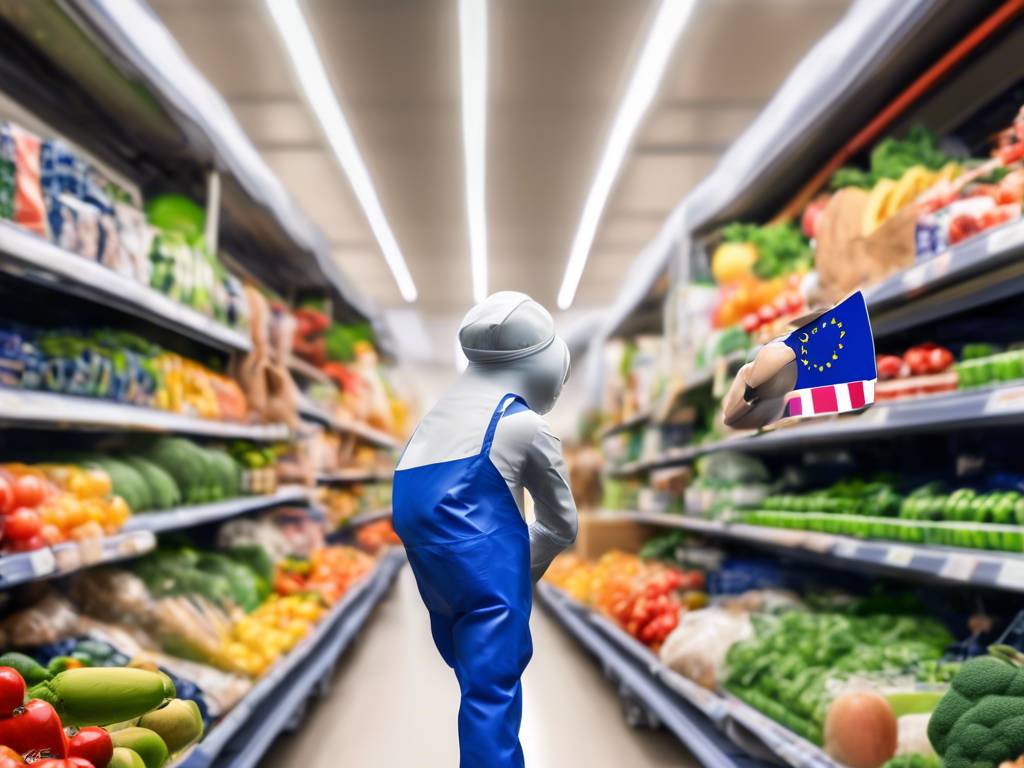Stay Informed: The Latest Update on Post-Brexit Regulations for Fresh Food Imports
Are you a crypto enthusiast interested in the latest developments in post-Brexit regulations for fresh food imports? Stay updated on the recent changes in Britain’s approach to physical checks on EU food products. Gain insights into how smaller retailers and wholesalers are adapting to these new requirements and what it means for the future of food imports from the EU.
Understanding Britain’s Post-Brexit Regulations on Fresh Food Imports
As Britain navigates the complexities of post-Brexit trade agreements, one key area of focus is the regulation of fresh food imports from the EU. Here are some important points to consider:
– **Physical Checks:** Britain has started implementing physical checks on fresh food products imported from the EU. This move aims to ensure that all food items meet the necessary safety and quality standards.
– **Impact on Smaller Retailers and Wholesalers:** Smaller businesses that rely on EU imports may face challenges in meeting the new regulatory requirements. They will need to invest in compliance measures to continue importing fresh food products.
– **Long-Term Implications:** The introduction of physical checks on EU food imports signals a shift in Britain’s approach to trade post-Brexit. It underscores the importance of upholding food safety standards while also potentially causing disruptions in the supply chain.
Adapting to the New Regulatory Landscape
For retailers and wholesalers involved in importing fresh food products from the EU, it is essential to adapt to the new regulatory landscape. Here are some steps you can take to navigate these changes:
– **Compliance Measures:** Ensure that your business is compliant with the physical checks and other regulatory requirements imposed on fresh food imports from the EU.
– **Supply Chain Management:** Review your supply chain processes to identify any potential disruptions caused by the new regulations. Implement contingency plans to address any issues that may arise.
– **Communication:** Keep an open line of communication with your EU suppliers to stay informed about any changes in regulations or requirements. Collaboration is key to navigating the shifting post-Brexit trade landscape.
The Future of Fresh Food Imports from the EU
As Britain continues to adjust its trade policies post-Brexit, the future of fresh food imports from the EU remains uncertain. However, by staying informed, proactive, and adaptable, retailers and wholesalers can position themselves to navigate the evolving regulatory environment successfully. Stay tuned for further updates on how these changes may impact the crypto industry and the wider market.
Hot Take: Navigating the Post-Brexit Regulatory Landscape for Fresh Food Imports
Stay ahead of the curve by understanding the implications of Britain’s physical checks on fresh food products from the EU. As the regulatory landscape continues to evolve, being proactive and adaptable will be key to ensuring a smooth transition for your business. Keep abreast of the latest updates and developments to make informed decisions that will position you for success in the post-Brexit era.





 By
By
 By
By



 By
By